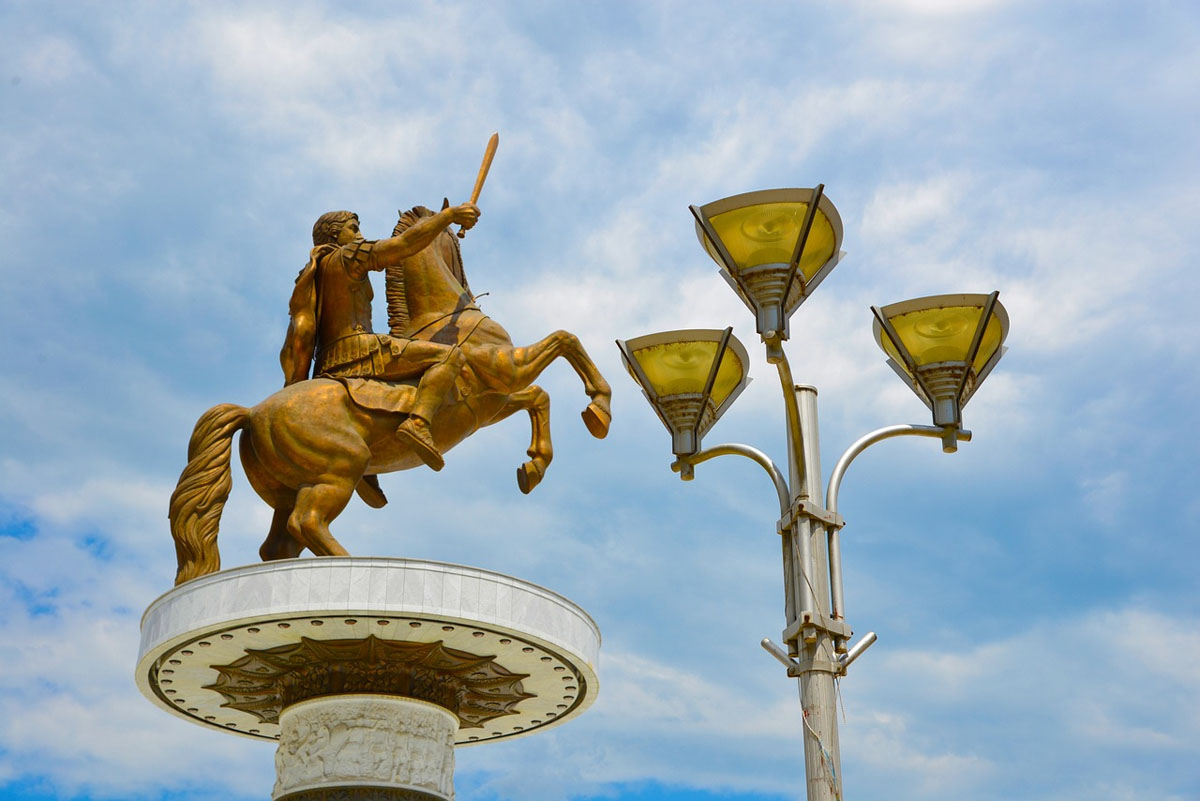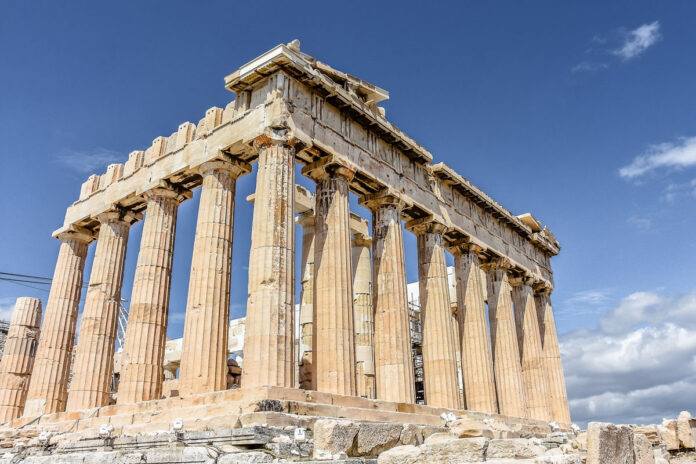Ancient Greece: The Genesis of Democracy and Philosophy
The origins of Greek history can be traced back to the Stone Age, approximately around 3000 BCE, when the initial civilizations emerged on the Greek mainland and the Aegean islands. These early cultures laid the groundwork for the flourishing Minoan and Mycenaean civilizations, which thrived from approximately 1600 to 1100 BCE. However, the decline of these civilizations precipitated the onset of the Greek Dark Ages.
Around 800 BCE, Greece experienced a renaissance. City-states, known as polis, emerged as the fundamental political entities of ancient Greece. Prominent among these were Athens, Sparta, Corinth, and Thebes. The 6th and 5th centuries BCE marked the pinnacle of ancient Greece, witnessing the birth of democracy in Athens under the leadership of Cleisthenes. This groundbreaking development established a precedent for future democratic societies.
Concurrently, Greek philosophy began to take shape during this epoch. Intellectual luminaries such as Socrates, Plato, and Aristotle laid the groundwork for Western philosophy, propounding profound ideas that continue to resonate to this day. The Persian Wars, spanning from 499 to 449 BCE, served as a testament to Greek unity and military prowess, particularly exemplified by the Battle of Marathon and the Battle of Thermopylae.
The Golden Age of Athens and the Peloponnesian Wa
The 5th century BCE marked a period of great prosperity for Athens, commonly referred to as the Golden Age. During this time, Pericles, a prominent statesman, implemented democratic reforms and oversaw the construction of remarkable architectural structures, including the Parthenon, situated on the Acropolis. Additionally, this era witnessed a flourishing of arts, drama, and literature, with renowned playwrights such as Aeschylus, Sophocles, and Euripides producing enduring works of tragedy.

Regrettably, this golden age was tarnished by the Peloponnesian War (431-404 BCE) between Athens and Sparta, along with their respective allies. Ultimately, Athens suffered defeat in this conflict, resulting in a decline in its power and influence.
Hellenistic Greece: Alexander the Great and Greek Expansion
The period of ancient Greek history and culture that followed the death of Alexander the Great in 323 BCE and lasted until the Roman conquest of Greece in 146 BCE marked a significant cultural, political, and economic transformation in the Mediterranean world. Greek influence spread across vast territories under the rule of Alexander and his successors, during what is known as the Hellenistic Greece era. Alexander the Great, born in 356 BCE in Pella, the ancient capital of Macedonia, was one of the most successful military commanders in history. He ascended to the throne at the age of 20 after his father’s assassination and unified many Greek city-states under Macedonian rule.
Under the leadership of Alexander, the Macedonians and Greeks undertook a series of military campaigns that resulted in the establishment of a vast empire. This empire extended from Greece to Egypt and reached as far east as the Indus River in present-day Pakistan and India. Referred to as the Macedonian Empire, this expansion had a significant impact on the regions it encountered.
One of the notable achievements of Alexander’s conquests was the dissemination of Greek culture, language, and ideas. This process, known as Hellenization, exerted a profound influence on the art, architecture, philosophy, and language of the regions encompassed by the empire. Greek became the predominant language among the educated elite in these areas.
During the Hellenistic period, Alexander established multiple cities, such as Alexandria, which became hubs for administration, trade, and culture. These cities were constructed with Greek-style architecture and were home to a diverse population of Greeks and locals. The blending of Greek, Persian, Egyptian, and other cultures during this time led to the development of new art forms, religious beliefs, and philosophical schools of thought. Additionally, scholars in Alexandria made significant contributions to fields such as astronomy, mathematics, and medicine. However, after Alexander’s death, his empire was divided among his generals, resulting in political fragmentation and conflicts among the Hellenistic kingdoms.

The decline of the independent Greek city-states marked the end of Greek independence during the Hellenistic period. Despite the continued flourishing of Greek culture, the city-states experienced a loss of autonomy and frequently fell under the dominion of larger kingdoms.
This period, however, played a crucial role in shaping the future Roman Empire and had a profound and enduring influence on the evolution of Western civilization. Greek cultural influence endured across the Mediterranean region and even extended beyond, leaving a lasting impact on the realms of art, literature, and philosophy for many centuries to follow.
Roman Greece and Byzantine Empire
During the period known as Roman Greece, which began in 146 BCE and ended in 395 CE, the region that is now modern-day Greece was under the control of the Roman Republic and later the Roman Empire. This era witnessed a significant level of urbanization and infrastructure development, with the establishment and expansion of numerous cities. The Greeks played a crucial role in shaping Roman culture, philosophy, and art, while also being influenced by Roman traditions, resulting in a fusion of customs in the area.
In contrast, the Byzantine Empire refers to the eastern half of the Roman Empire that persisted after the fall of the Western Roman Empire in 476 CE. The capital of the Byzantine Empire was Byzantium, later renamed Constantinople (now known as Istanbul), which was founded by the Roman Emperor Constantine the Great in 330 CE. The Byzantine Empire endured until 1453, when Constantinople was conquered by the Ottoman Turks.
During the Byzantine Empire, the flourishing of Greek culture and language persisted, while the empire played a crucial role in safeguarding and disseminating ancient Greek and Roman knowledge to the medieval era. Additionally, the Byzantines made noteworthy advancements in art, architecture, and theology, establishing themselves as a dominant force in the Eastern Mediterranean for an extensive period of approximately one thousand years. The enduring influence of the Byzantine Empire’s legacy can still be observed in the cultures of contemporary Greece and other Eastern Orthodox Christian nations within the region.
The Ottoman Empire and Greek Independence
The Greek War of Independence, lasting from 1821 to 1829, signified the triumphant uprising of the Greeks against the Ottoman Empire. At its zenith, the Ottoman Empire encompassed a vast expanse, which included Greece, subjected to Ottoman dominion for nearly four centuries.
Various factors contributed to the Greek War of Independence, encompassing nationalist sentiments within the Greek populace, economic grievances, and a yearning for political self-governance. The Greek movement for independence gained momentum during the early 19th century, culminating in a comprehensive rebellion in 1821.
The conflict was characterized by a succession of brutal battles, with both sides committing atrocities, and external intervention further complicating the situation. Additionally, the movement of Philhellenism, which found support in Western Europe and the United States, played a significant role in rallying international backing for the Greek fighters seeking independence.
The naval Battle of Navarino in 1827, where a combined British, French, and Russian fleet defeated the Ottoman and Egyptian forces, was a crucial turning point in the war. This victory dealt a significant blow to the Ottoman Empire’s control over Greece. In 1829, the Treaty of Adrianople was signed, recognizing Greece as an independent and sovereign state, but the borders were not yet defined. Despite territorial disputes with the Ottoman Empire and neighboring powers, Greece’s borders were gradually expanded through negotiations and conflicts, including the inclusion of Thessaly and parts of Epirus. The Greek War of Independence had a lasting impact on nationalist movements in the Balkans and inspired other ethnic and national groups within the Ottoman Empire to seek independence. It also contributed to the decline of the Ottoman Empire, which continued to lose territories throughout the 19th century.
Modern Greece: Nation-Building and 20th Century Challenges
Greece encountered numerous challenges in the 19th and early 20th centuries, including territorial disputes, political instability, and involvement in both World Wars. Throughout World War II, Greece was subjected to occupation by Axis powers, but ultimately liberated with the assistance of the Allies.
Subsequently, Greece underwent a civil war, culminating in the defeat of communist forces. In 1949, Greece transitioned into a republic. However, political instability persisted, leading to a military coup in 1967. The military junta governed until 1974, when democracy was reinstated.
World Wars and Civil Strife
During the course of World War I, Greece initially maintained a position of neutrality, but eventually aligned itself with the Allies. The aftermath of the war, coupled with a series of political upheavals, culminated in a coup d’état in 1922 and the establishment of the Second Hellenic Republic. World War II brought about further turmoil, as Greece fell under the occupation of Axis forces, enduring immense suffering and famine during the German and Italian occupation. The resistance movement played a pivotal role, with both communist and non-communist factions engaging in a valiant struggle against the occupying forces.
The Greek Civil War and Post-War Recovery
communist-led Democratic Army of Greece and the government forces, which received support from the United States and United Kingdom. The civil war concluded in 1949, leaving behind a deeply divided society. Subsequently, Greece embarked on a period of reconstruction and development, aided significantly by economic assistance from Western nations.
Modern Greece: Challenges and Progress
The latter half of the 20th century presented Greece with a multitude of challenges, including political instability, economic fluctuations, and tensions with Turkey over the issue of Cyprus. Greece became a member of the European Economic Community (EEC) in 1981, a development that brought about economic stability and progress.
However, Greece encountered a severe economic crisis in the late 2000s, triggered by the global financial downturn and compounded by internal factors such as high public debt and structural deficiencies. This crisis necessitated the implementation of austerity measures, which in turn led to social unrest and posed significant challenges for the Greek populace. Despite these formidable obstacles, Greece endeavored to reform its economy and received international support to stabilize its financial situation.
Greece Today: Cultural Richness and Challenges
In the contemporary era, Greece remains an exuberant center of culture, captivating visitors from all corners of the globe with its ancient remnants, idyllic islands, and profound customs. The nation has confronted various obstacles, including the refugee crisis, economic reforms, and the ongoing dispute with Macedonia concerning the utilization of the name “Macedonia.”
The historical narrative of Greece serves as a testament to the indomitable spirit of its populace, who have withstood numerous trials and continue to make substantial contributions to the world’s cultural, intellectual, and artistic legacy. From its ancient origins to its contemporary struggles and triumphs, Greece’s chronicle epitomizes resilience, ingenuity, and the relentless pursuit of a brighter future for its inhabitants.





